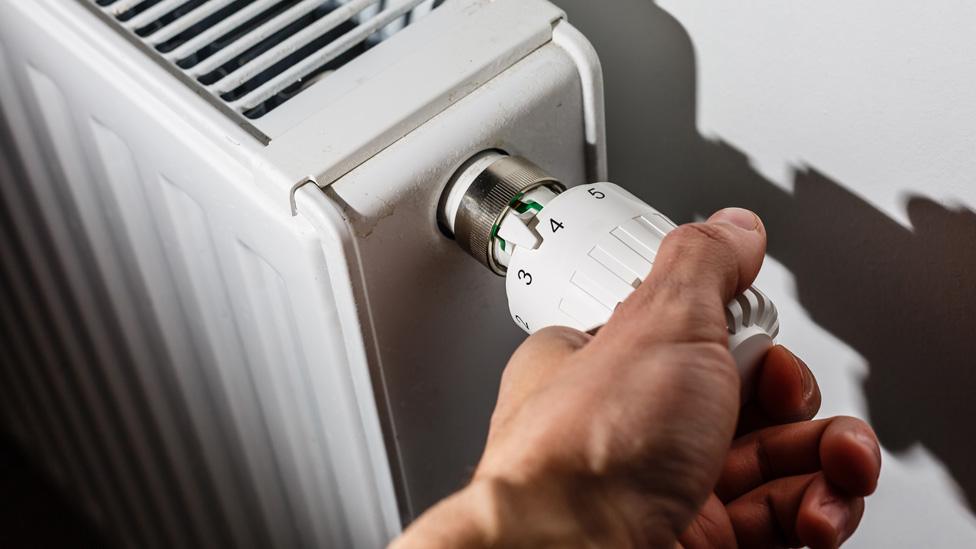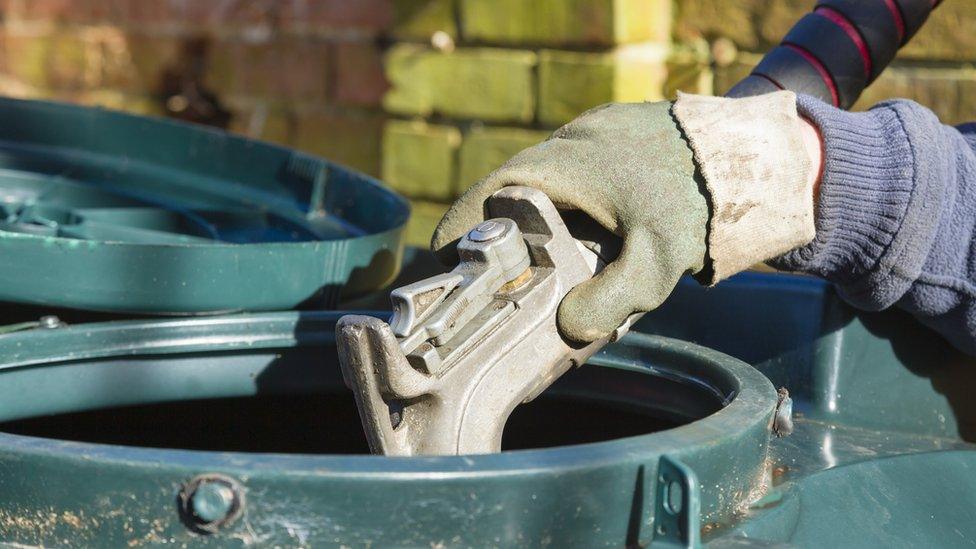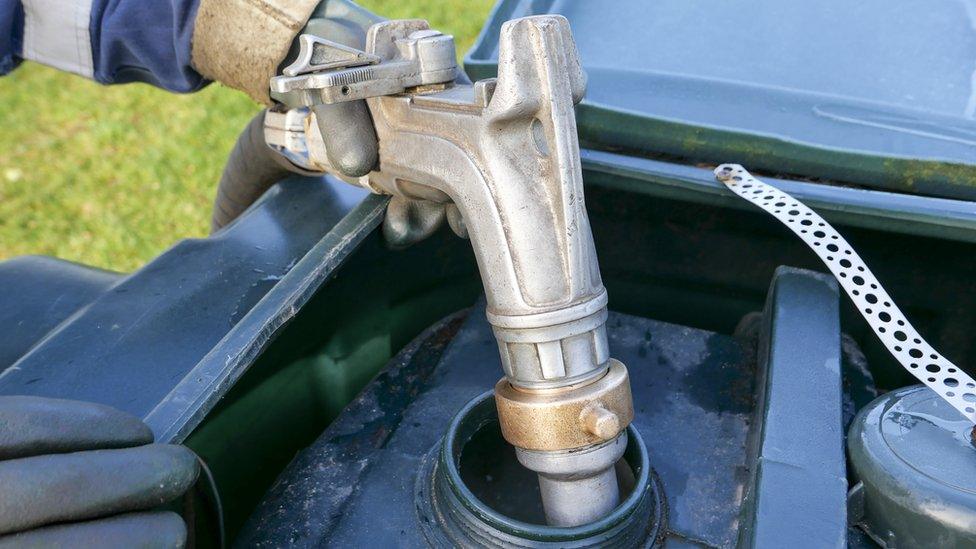Cost of living: NI households may need proof for £100 oil payment
- Published

Home heating oil users are in line for a separate support payment this winter
Some people may need to provide verification that they use home heating oil to get a £100 support payment.
The payment was announced in September as part of a package of measures to help with energy costs.
It will be paid as a credit to electricity bills and for the vast majority of people it will happen automatically.
But it is understood that some "edge cases" may have to provide proof they are entitled.
About two thirds of households in Northern Ireland use heating oil.
The intention is that government would provide electricity suppliers with the data on who is entitled to the payment.
There is no central register of which households use heating oil.
Instead the scheme could involve looking at the database of all active domestic electricity connections and making a payment to addresses which did not also have an active gas connection.
That is unlikely to be a perfectly clean dataset, meaning some people could be at risk of missing out while others might get a payment they are not entitled to.
However, there is a growing realisation in government that a perfectly accurate scheme will not possible, which is why some people may need to prove they are entitled to the money.
It is not yet clear when the £100 will be paid, with previous government statements only committing to "this winter".
Earlier this week a senior official at the Northern Ireland Utility Regulator said the £100 was unlikely to be paid until early next year.
Kevin Shiels, the Utility Regulator's director of retail and consumer protection, also said the timing and delivery of a separate £400 Energy Bills Support Scheme is still unclear.
Households in Northern Ireland are due to be credited with the payment automatically to help with energy costs this winter.
But Mr Shiels said there is a chance it may not arrive until January.
There is also uncertainty over whether the money will come as one lump sum or in several smaller instalments.
Related topics
- Published19 October 2022

- Published12 October 2022

- Published21 September 2022
